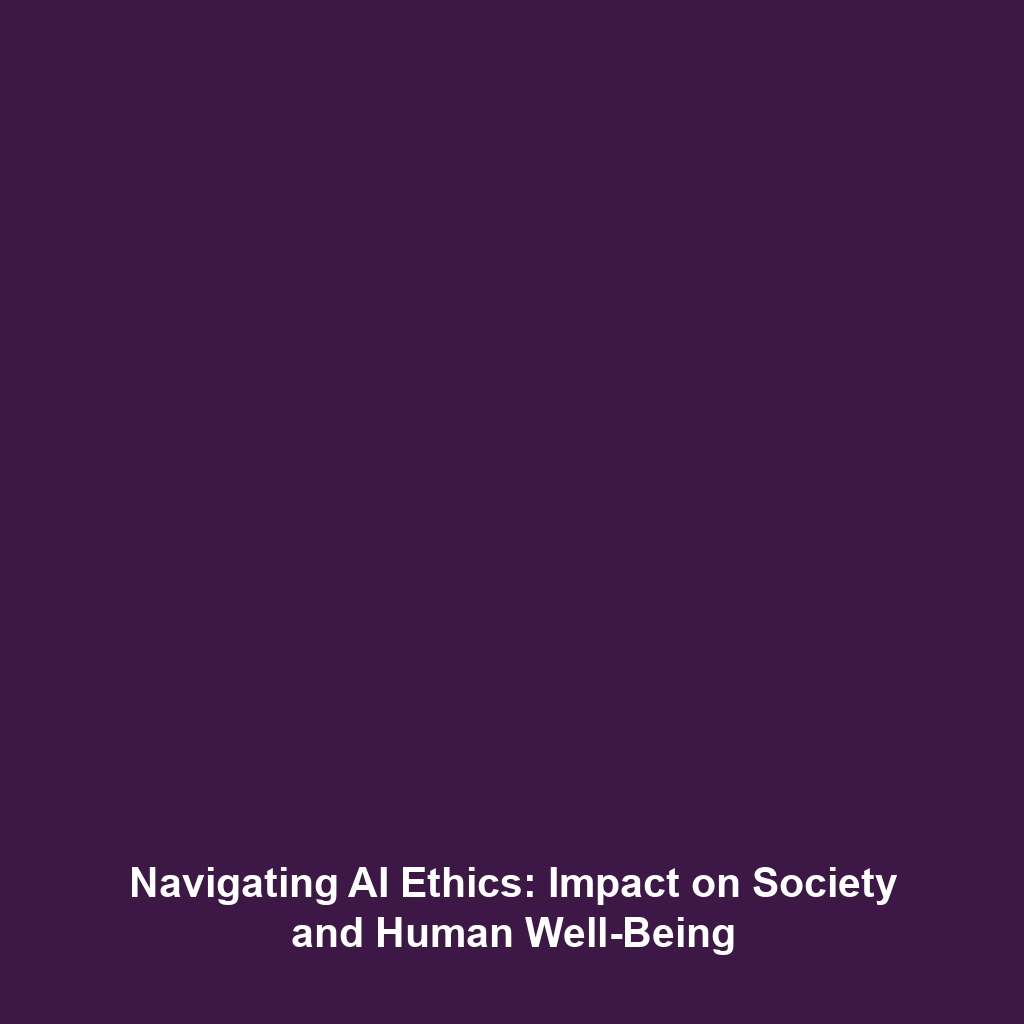AI and Inequality: The Risk of AI Exacerbating Existing Inequalities
Introduction
In the age of rapid technological advancement, the role of artificial intelligence (AI) in societal structures is a topic of growing concern, particularly regarding its potential to deepen existing inequalities. The relationship between AI and inequality remains critically significant within the realm of AI Ethics. This article delves into how AI systems may inadvertently perpetuate biases, thereby exacerbating disparities in access and opportunity across various demographic lines. Understanding this dynamic is essential for policymakers, technologists, and ethicists alike as they navigate the ethical implications of deploying AI technologies.
Key Concepts
To grasp the implications of AI on inequality, it is important to explore several key concepts within the sphere of AI Ethics:
- Algorithmic Bias: AI systems are trained on data, which may reflect existing societal biases, leading to biased outcomes.
- Access to Technology: Unequal access to AI technologies can widen the gap between wealthier and less affluent communities.
- Transparency and Accountability: Lack of transparency in AI decision-making processes can hinder fair treatment and recourse for affected individuals.
- Discrimination: AI tools can unintentionally discriminate against marginalized groups, perpetuating systemic inequalities.
Applications and Real-World Uses
AI has found its way into various sectors with significant implications for inequality. Exploring how AI and inequality interconnect within AI Ethics reveals several critical applications:
- Hiring Algorithms: Many companies use AI-driven recruitment tools that may inadvertently favor certain demographics, affecting employment equality.
- Healthcare Access: AI in healthcare can streamline processes, but if not carefully managed, it could disproportionately benefit those already advantaged in the healthcare system.
- Education Technology: AI applications in education may enhance learning outcomes for some while neglecting those from underprivileged backgrounds.
Current Challenges
Various challenges hinder the equitable application of AI within the context of inequality:
- Lack of Diverse Data: Many AI systems are trained on homogeneous datasets, leading to inadequate representation of marginalized groups.
- Regulatory Gaps: Existing regulations may not sufficiently address the ethical concerns surrounding AI deployment, particularly in sensitive sectors.
- Public Awareness: There is often a significant disconnect between the capabilities of AI technologies and public understanding, inhibiting informed discussions about their impact.
Future Research and Innovations
As we look forward, several innovative research areas promise to address the intersection of AI and inequality:
- Fair AI Tools: Development of algorithms designed to actively counteract bias and promote fairness.
- Inclusive Data Strategies: Research focusing on diversifying training datasets to reflect a broader array of demographics and realities.
- Policy Frameworks: New frameworks are required to ensure accountability and ethical conduct in AI deployment.
Conclusion
The potential for AI to exacerbate existing inequalities is a pressing issue in the discourse surrounding AI Ethics. As this field evolves, it is crucial for stakeholders to engage with these challenges and work collaboratively to minimize risks and promote equity. For further insights, consider exploring our articles on ethical practices in AI and initiatives for inclusive AI development.
